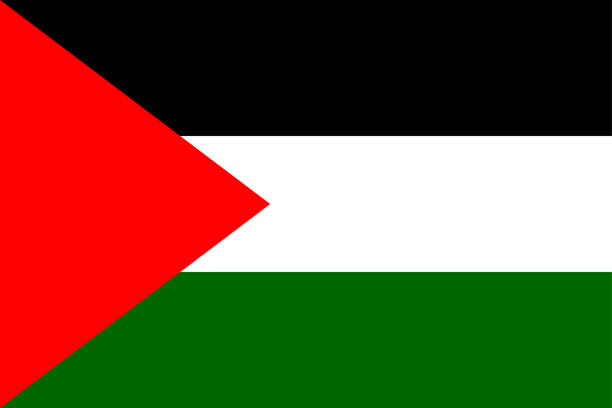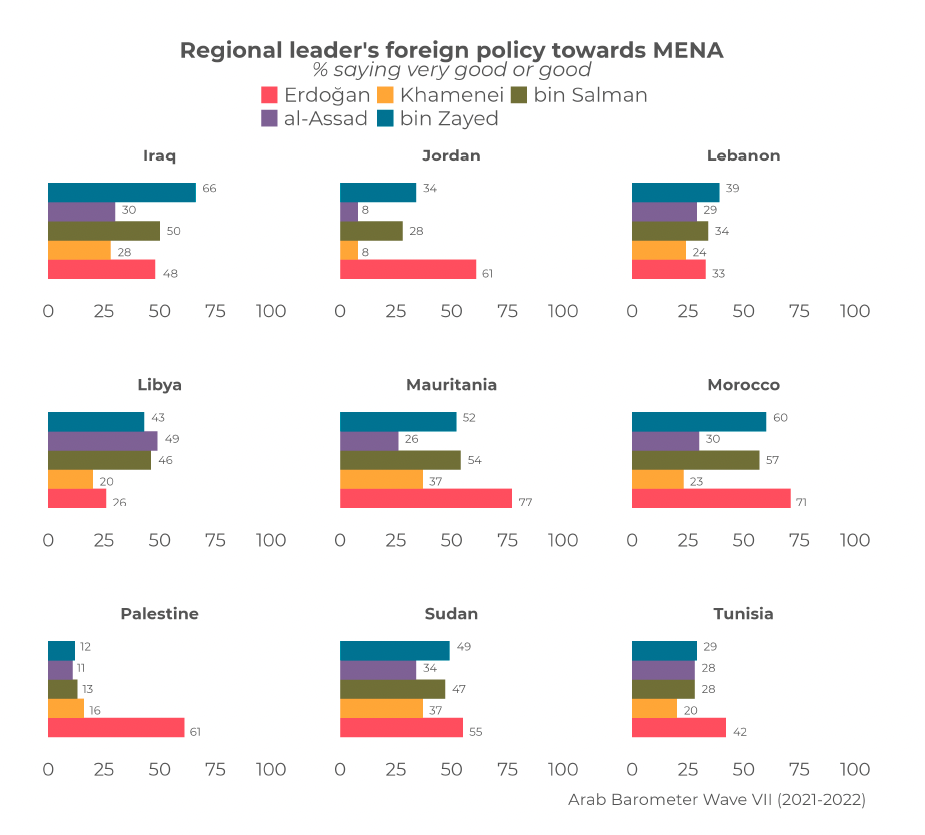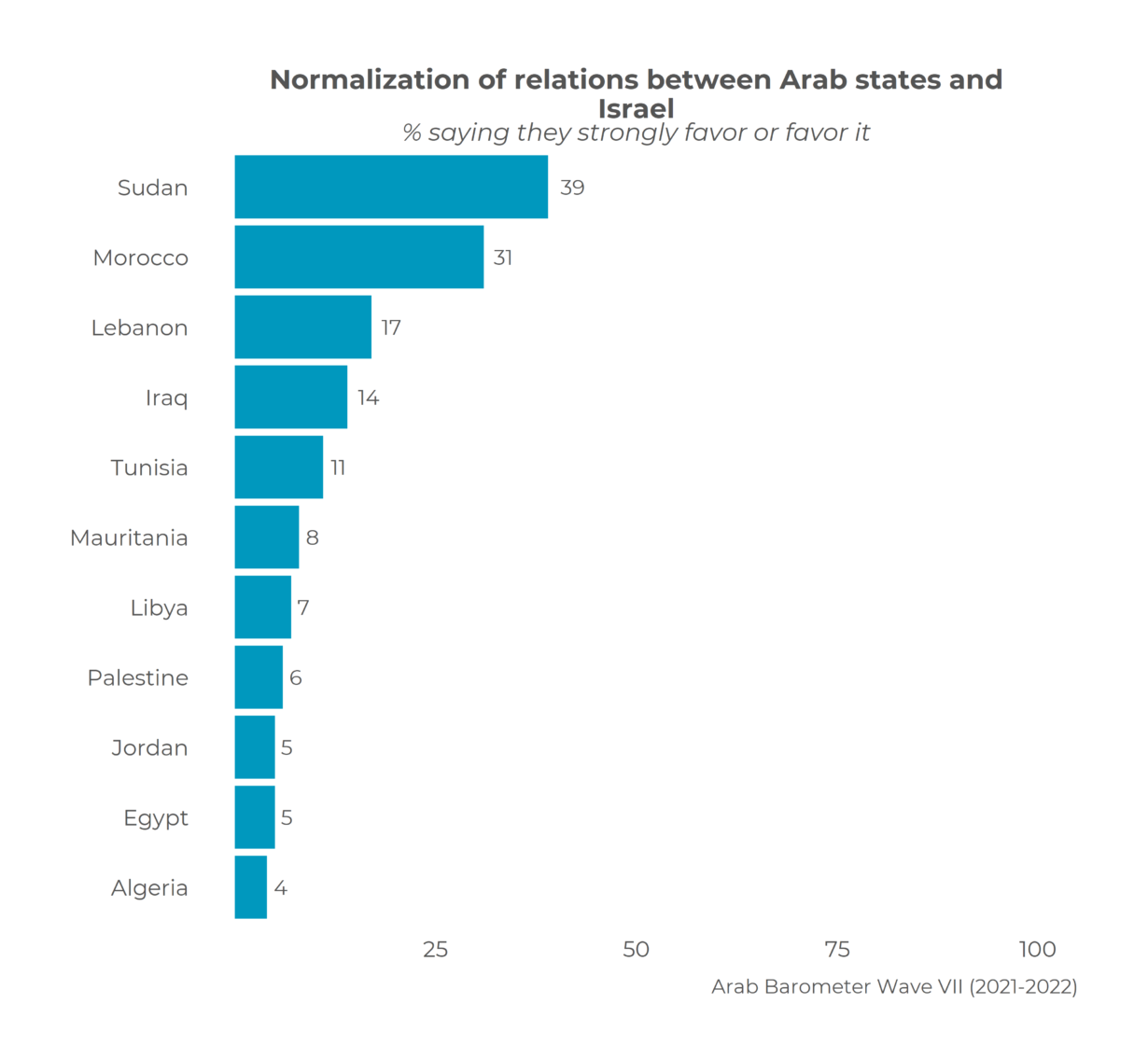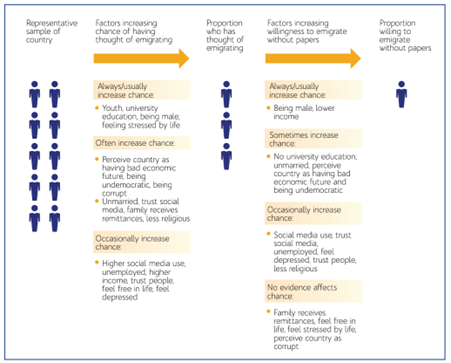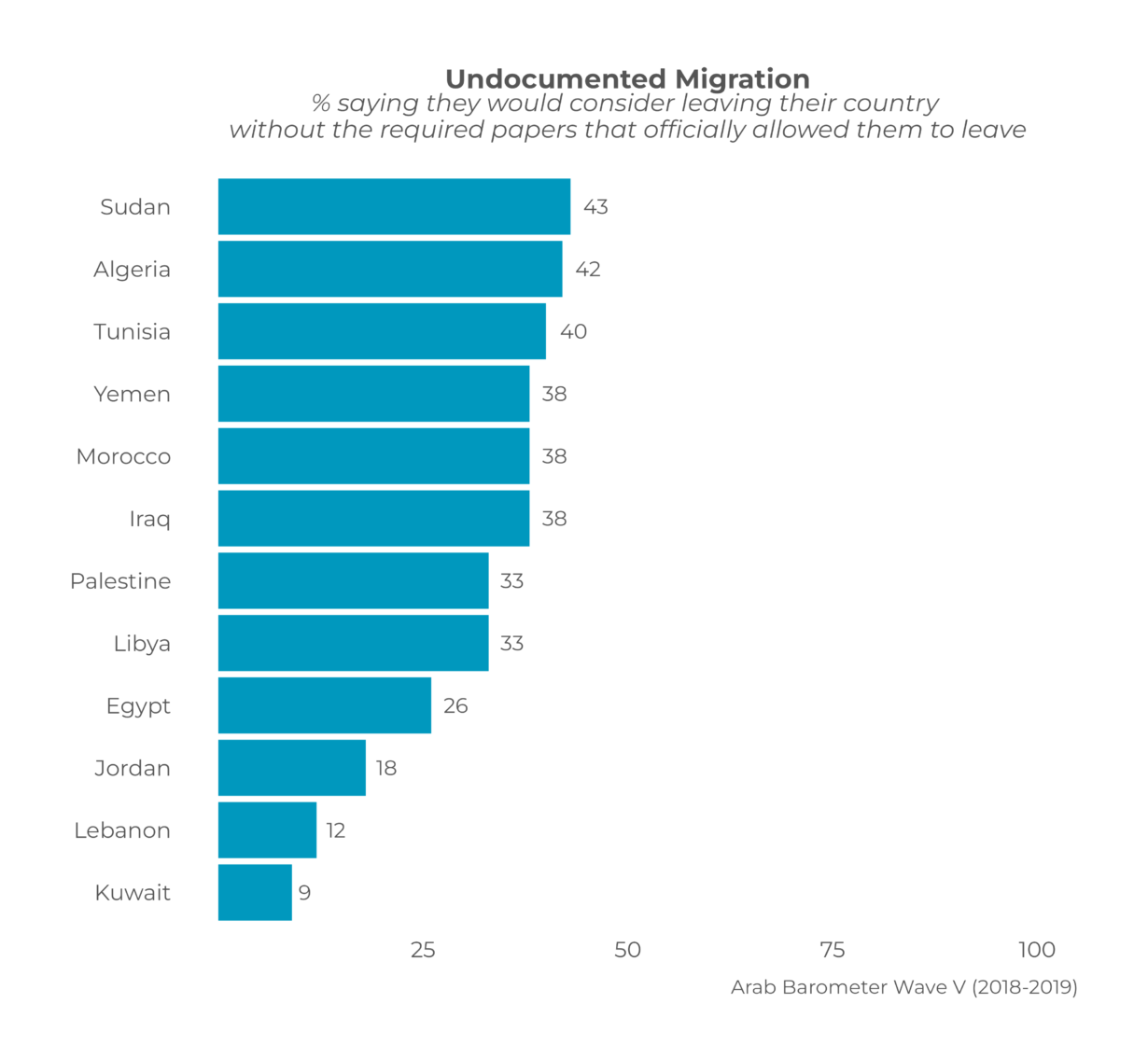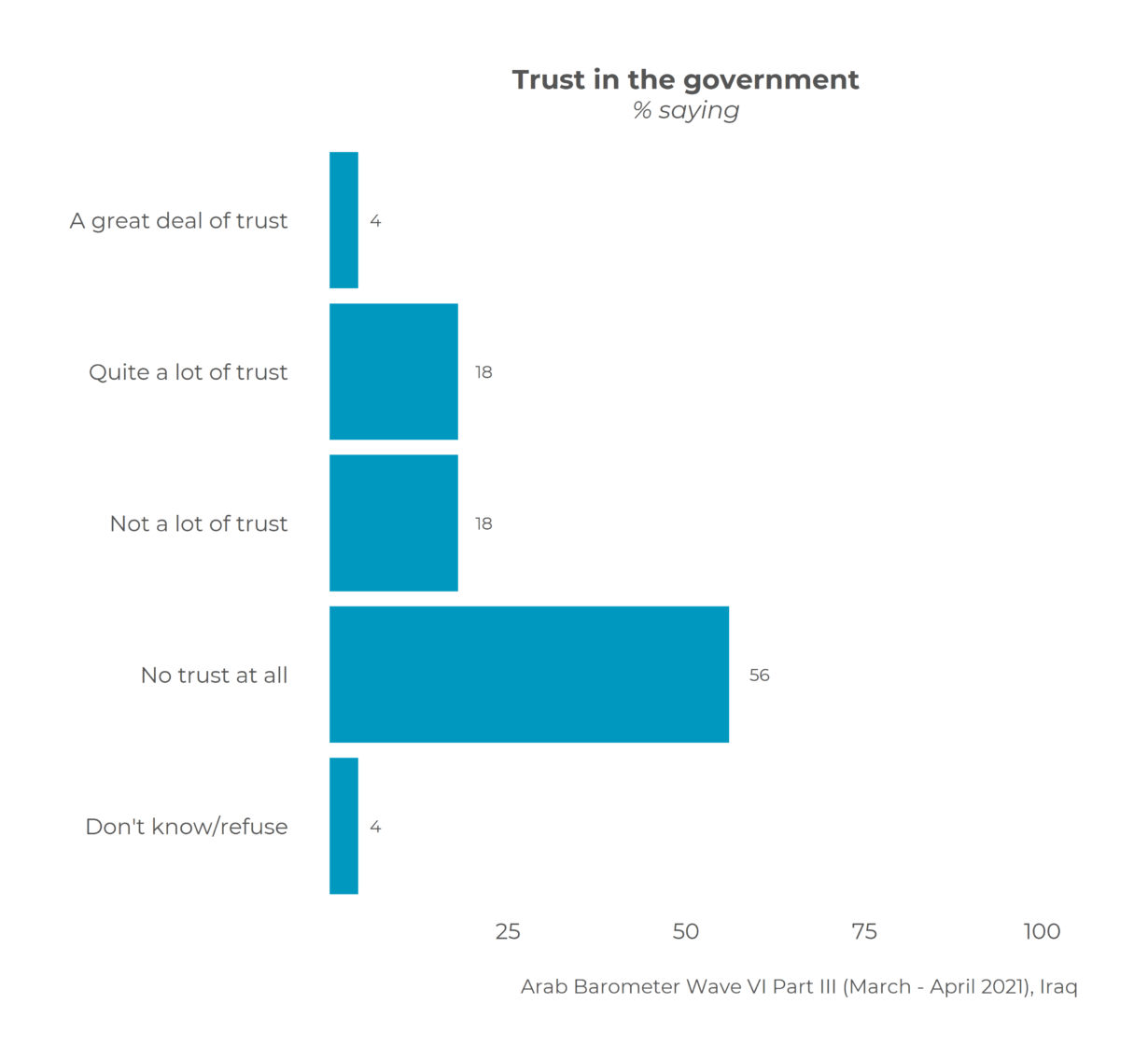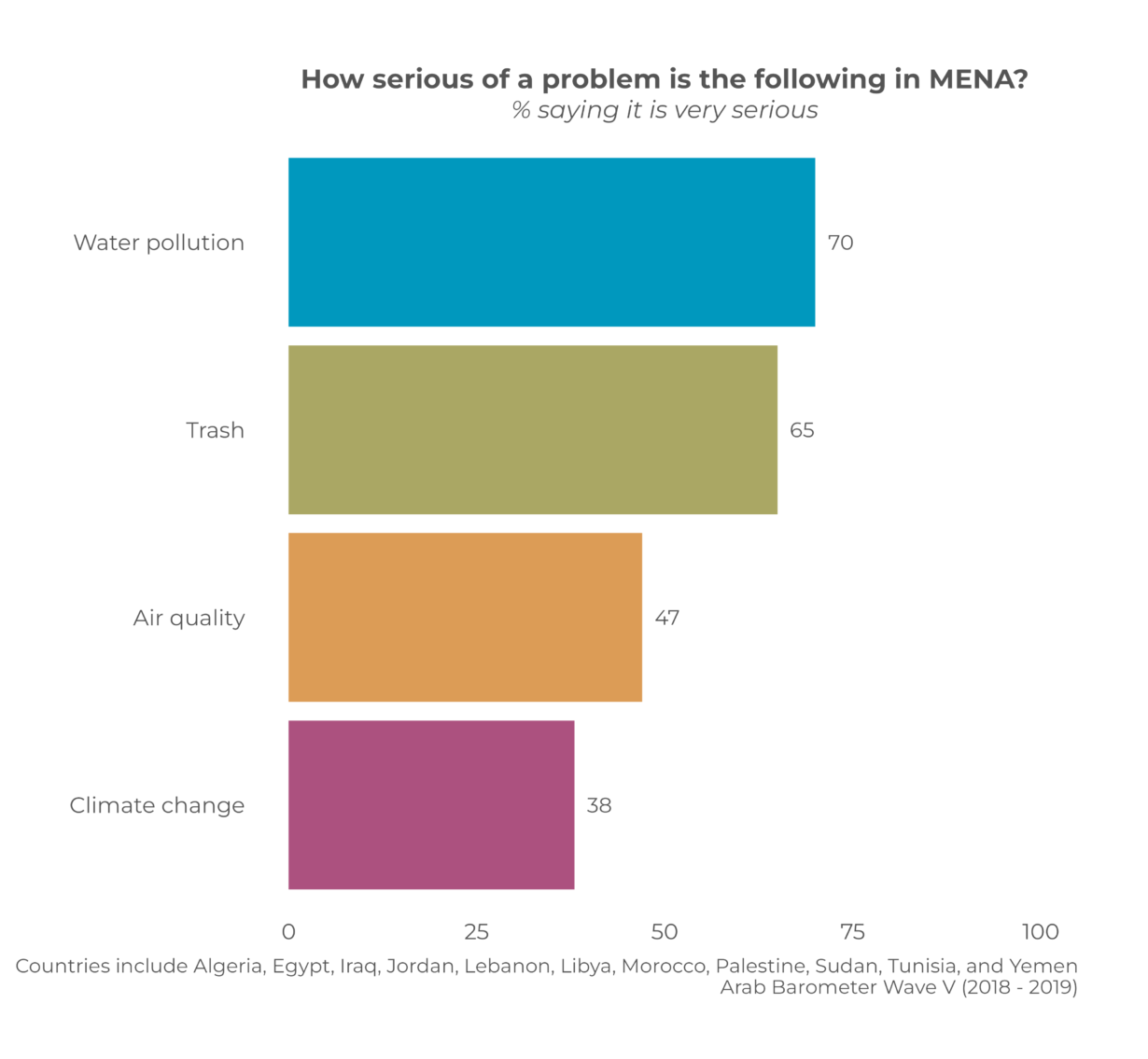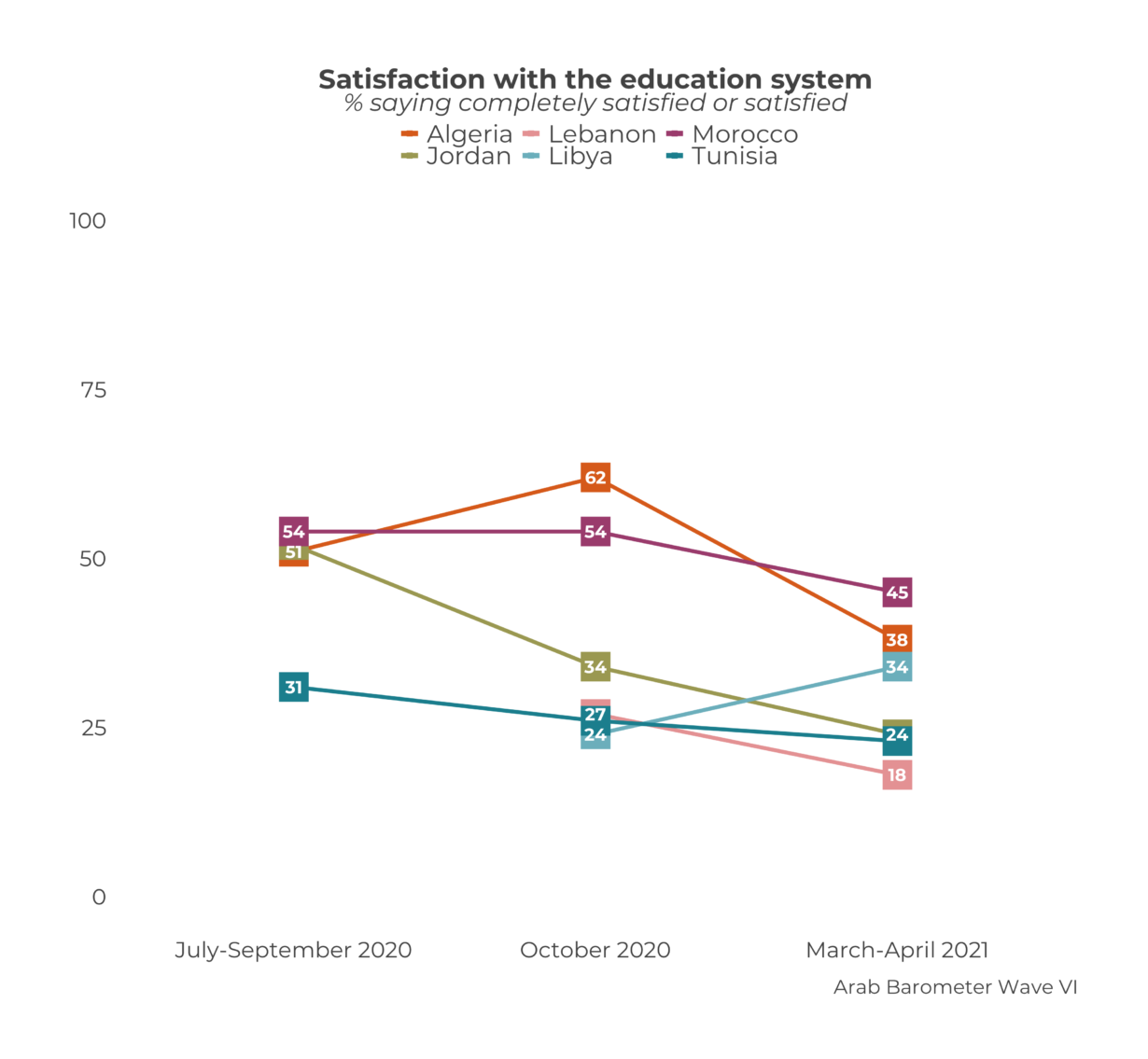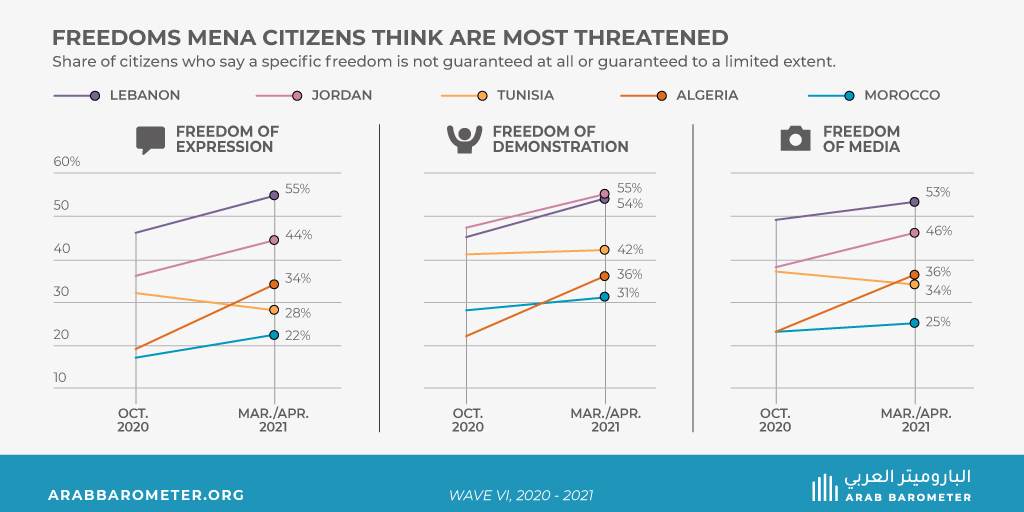While the domestic balance of power shifts a little in favor of Fatah, about 70% express worry, in light of the attempt to assassinate Dr. Nasser al Sha’ir, that internal armed strife might erupt at one point in the future, almost 90% do not trust the statements by the PA government regarding the transfer to Palestinian banks of the salaries…
Citizens Lukewarm on Leaders’ Cold War
Over the last decade, there has been an ongoing competition for leadership within the Middle East and North Africa. Some have described this as a new Arab Cold War, with an anti-Iran and anti-Islamist block led by Saudi Arabia and the United Arab Emirates on one side with a more pro-Iran and pro-Islamist bloc led by Turkey and Qatar on…
How Do MENA Citizens View Normalization With Israel?
There is broad rejection among ordinary citizens across MENA of the U.S.-backed Abraham Accords and a broader peace deal with Israel. Although at most about a quarter of citizens in the region say they follow news on this issue a great deal or fair amount, including just one-in-ten in Tunisia, Palestine, Lebanon, Jordan, and Iraq, these peace agreements are widely…
Re-thinking the drivers of regular and irregular migration: evidence from the MENA region
Why do individuals vary in their desire to emigrate? Why are some willing to emigrate irregularly? My recently published open access article in Comparative Migration Studies tests four theoretical approaches to these two questions—socio-demographics; economic and political context; access to migrant networks; and psychological factors—across 12 countries in the Middle East and North Africa. To do so, it uses logistic…
Half of Lebanese consider migrating
Lebanese are the most pessimistic about their country’s economic future of any country surveyed in Arab Barometer’s sixth wave between 2020 and the spring of 2021. Among all the economic worries, the rising cost of living is seen as the biggest challenge. Unsurprisingly, about half citizens (48 percent) are seeking to leave their homeland for better opportunities abroad. Yet, when…
Iraq Pulse: unrest amid the COVID-19 pandemic
Nearly 19 years have passed since the removal of Saddam Hussein from power and the establishment of the second republic of Iraq. While the structures of the State and the political system have been deeply and extensively reshaped, the impact of this transformation on the life of Iraqis remains debated. The latest Arab Barometer’s (AB) survey (Wave VI which was–…
Palestinian views on local and international dualities
The public favors a neutral stand in the Russian war against Ukraine even as slightly more people blame Russia for starting the war; closer to home, Israel-PA “confidence building measures” are increasingly viewed favorably even as two-thirds share the view that Israel is an apartheid state; and domestically, ten months after the Israel-Hamas War, Fatah’s popularity returns to its pre-May…
What MENA Citizens Think About The Environment in 11 Graphs
From 28 to 31 March 2022, the inaugural Middle East and North Africa Climate Week 2022 in Dubai, UAE will bring together key stakeholders to take the pulse of climate action in the region, explore climate challenges and opportunities to build forward from the pandemic and showcase ambitious solutions. Arab Barometer’s 2018-2019 wave of surveys found that citizens across MENA…
What Arabs Think About Education During The COVID-19 Pandemic
On the occasion of the International Day of Education on January 24th, we would like to share nine key findings on what MENA citizens think about education in their countries. This data is based on our most recent sixth wave of surveys that was conducted in seven Arab countries during the COVID-19 pandemic, between July 2020 and April 2021. 1-…
Taking Tunisians’ Pulse : Key findings from AB6 survey 2020-2021
The July 2021 political events in Tunisia were not entirely unexpected given the country’s ongoing challenges on a number of fronts. Deteriorating economic conditions combined with the high death toll from the COVID pandemic crystalized failure of the political system to address the basic problems facing ordinary Tunisians. The failure to undertake needed reforms over the past decade produced a…
Fragile Popularity: Arab Attitudes Towards China
In recent years, China’s engagement in the Middle East and North Africa (MENA) has been rapidly increasing. At least 17 MENA countries have signed agreements as part of its Belt and Road Initiative (BRI). Meanwhile, in response to the COVID pandemic, Chinese vaccines have been secured by a number of countries across the region while China has promised aid to…
Topics
- Charity2
- Corruption114
- COVID-1969
- Democracy36
- Discrimination14
- Economy227
- Education52
- Environment37
- Extremism19
- Freedoms51
- Gender Issues160
- Governance254
- Health45
- International Relations195
- Labor Market36
- Media31
- Migration64
- Political Institutions214
- Political Participation34
- Political Systems61
- Refugees6
- Religion118
- Security33
- Social Justice44
- Wellbeing2
- Youth75
